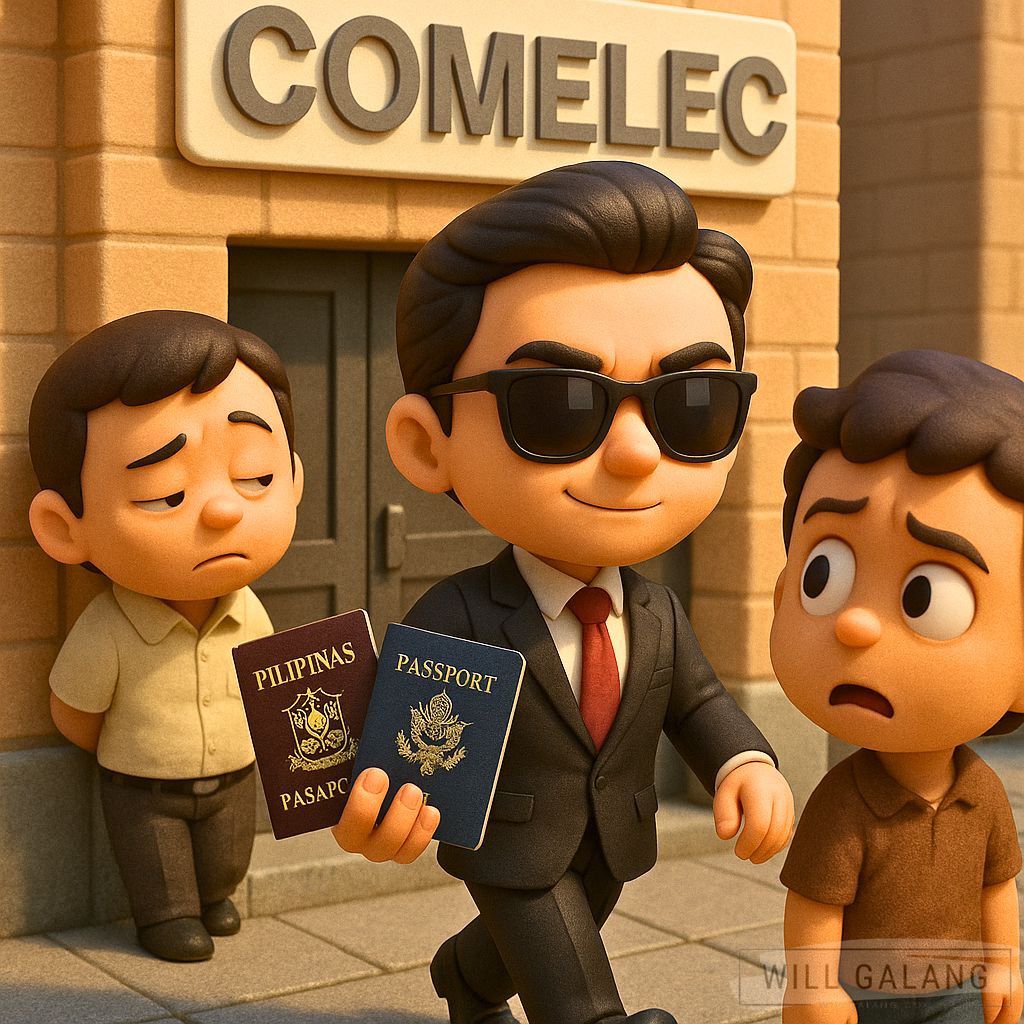
Every time elections come around in the Philippines, there’s one thing you can count on more reliably than vote-buying or recycled jingles: the return of the same old names. Dynasties. Tycoons. Celebrities turned lawmakers. And among them, more often than you’d expect, are individuals who spent a good part of their lives abroad—sometimes as American or Canadian citizens—now suddenly back to “serve” the country. Funny how that works.
I am not a lawyer. But I think the law is clear. The 1987 Constitution says only natural-born Filipinos can run for public office. Dual citizens? They’re supposed to be disqualified—unless they formally renounce their foreign citizenship before filing their candidacy.
But here’s the open secret: they never really get disqualified.
The COMELEC, the agency that’s supposed to enforce these rules, turns a blind eye when the candidate is wealthy, well-connected, or backed by a political dynasty. We’ve seen it happen over and over. Foreign passports conveniently forgotten. Renunciation papers filed late—if at all. No questions asked. No consequences.
The Supreme Court could step in, but the pattern is obvious: if you’re part of the elite, the rules stretch to accommodate you. For everyone else? Good luck navigating the red tape.
So here we are. A country where the law is flexible—if you’re powerful. Where dual citizenship isn’t a barrier to public office—it’s a perk. And where the gatekeepers, either asleep or complicit, nod along as another political heir waltzes in, two passports in hand, zero shame in their game.
Is it legal? Maybe not.
Is it fair? Not even close.
But in Philippine politics, fairness was never the point—only power, connections, and who can afford to play the game.
